Government agencies worldwide face the growing challenge of modernising their processes. There is an increasing need to be more efficient and cost-effective while ensuring security and compliance.
One significant way to streamline operations is by implementing digital signatures. This technology promises to enhance security, save time, and, most importantly, reduce operational costs.
In this guide, we explore how digital signatures can serve as a powerful tool for government agencies to drive cost savings while ensuring the integrity of their documents and workflows.

What are digital signatures?
A digital signature is an electronic, encrypted stamp of authentication on digital information such as:
- Emails
- Documents
- Transactions
It ensures that the document hasn’t been altered after signing and verifies the signer's identity. This security is made possible through encryption techniques like public key infrastructure (PKI). It provides a tamperproof method of confirming document authenticity.
Learn more about digital signatures.
The hidden costs of paper-based processes
Government agencies rely heavily on documentation, from legal contracts to public records and inter-agency communications. Traditional paper-based processes are often seen as the status quo. Unfortunately, they carry a heavy price tag.
Here’s a breakdown of the costs associated with operating this way:
- Printing and paper: Public sector agencies routinely spend upwards of millions on printing documents, purchasing paper, and maintaining office supplies.
- Storage: Paper documents require physical storage, which often translates into rented storage facilities, office space dedicated to filing and even expensive archival services.
- Time and labour: Manually printing, signing, scanning, filing and retrieving documents takes time—valuable time that could be better spent on more productive tasks. This often requires dedicated personnel, adding to payroll expenses.
- Mailing and distribution: Sending physical documents through postal services or couriers incurs costs related to postage, envelopes and mailing logistics.
- Human error: Paper-based processes are prone to errors such as misfiling, lost documents and incomplete forms. These can lead to costly delays and additional rework.
How do digital signatures cut costs?
Government agencies can eliminate many of these expenses by adopting digital signatures. Let’s examine how implementing digital signatures can lead to measurable cost savings.
Reduction in printing and paper costs
With digital signatures, documents do not need to be printed just to be signed. This dramatically reduces paper, ink and toner consumption. As government agencies often deal with thousands of documents daily, the cost savings on printing alone can be substantial. It also enables the mass processing of documents through bulk signing , saving significant time and effort.
Furthermore, embracing digital workflows can also contribute to an eco-friendlier approach, reducing the agency’s environmental footprint.
No physical storage requirements
In many situations, government processed documents have a retention period in which they must be kept. Digital documents don’t need to be stored in filing cabinets or external storage facilities.
All records can be stored securely in the cloud or on-premise databases. These are far more cost-effective and take up no physical space. Agencies save not just on storage costs but also on the time and resources spent searching for or retrieving long-held documents.
Time saved with streamlined workflows
Time is money. Digital signatures speed up the approval and signing process. Instead of printing, signing, scanning and mailing, an employee can simply review and sign a document electronically within minutes.
This means less time spent on paperwork and more time focused on the agency’s core focus. By automating repetitive administrative tasks, public sector agencies can free up resources for more strategic and impactful initiatives.
Elimination of mailing and courier costs
Digital signatures remove the costs of sending documents via the postal service, overnight courier deliveries and in-person document drop-offs.
Documents can be signed and shared instantly over secure digital platforms, like Ascertia’s SigningHub. It cuts down on delivery times and shipping expenses. This is particularly advantageous when dealing with time-sensitive contracts or intergovernmental agreements that span large distances.
Reduction in human error
With automated workflows, the chances of errors such as incomplete forms, lost documents, misfiling and clerical errors are greatly reduced. SigningHub comes with built-in safeguards, such as:
- Validation fields
- Form-checking features
These ensure all required information is captured before the document is signed. They reduce the need for costly corrections, reprints, and resubmissions.
What are the long-term strategic benefits of digital signatures?
Beyond the immediate cost savings we’ve outlined, adopting digital signatures also positions government agencies to better respond to future challenges.
- Improved security
Government agencies handle sensitive data that requires stringent security measures. Digital signatures provide robust security through encryption, ensuring only authorised parties can access and sign documents. This minimises the risk of forgery, tampering, and unauthorised access, ultimately saving on potential legal and compliance costs. - Faster response to public needs
Public sector organisations must often respond to public needs rapidly, whether it’s processing benefits, issuing licences, or facilitating public services. Digital signatures significantly reduce processing times, improving overall efficiency. Citizens receive services faster, enhancing the agency’s reputation and reducing the likelihood of delays and associated costs.
- Enhanced compliance
Many governments are moving toward e-governance and digital compliance requirements. By implementing digital signatures, agencies ensure they meet current and future regulatory standards, avoiding the financial and legal penalties associated with non-compliance.
Embracing the digital future with Ascertia
When implementing digital signatures, government agencies need a reliable partner who understands the technological and regulatory landscape. This is where Ascertia comes in.
With over two decades of experience in providing secure digital signature solutions, Ascertia is uniquely positioned to help government agencies streamline their document workflows while ensuring compliance with national and international standards.
Trusted by governments worldwide
Ascertia’s ADSS Signing Server and SigningHub platform is trusted by government agencies across the globe. Its reputation for offering highly secure and legally binding digital signatures means your agency can transition away from paper-based processes with confidence.
Our solutions are designed to comply with strict governmental regulations, including eIDAS , NIST, and other international standards, ensuring all digital signatures meet legal requirements.
Tailored solutions for public sector needs
We understand that no two government agencies are the same. That’s why we offer highly customisable solutions that can be tailored to meet each agency's unique demands.
Whether integrating with existing systems or securely managing high volumes of documents, Ascertia’s technology can be adapted to fit specific use cases while ensuring ease of use and seamless integration into existing workflows.
Cost-effective, scalable digital signature solutions
With Ascertia, government agencies can achieve significant cost savings. Our cloud-based and on-premise solutions eliminate the need for expensive IT infrastructure and are scalable to handle both small departments and large governmental organisations.
Whether your agency processes hundreds or thousands of documents a day, Ascertia’s platforms can grow alongside your needs, ensuring that your investment pays off in both the short and long term.
Enhanced security and compliance
Security is at the heart of our digital signature solutions. Our PKI-based digital signatures ensure that your documents remain tamper-proof and that only authorised individuals have access.
Additionally, Ascertia’s compliance with global regulations ensures your agency is always aligned with legal standards, helping avoid penalties and security breaches that could otherwise incur significant costs.
Support and expertise you can rely on
We are committed to helping public sector agencies not only adopt digital signatures but maintain and optimise their usage over time. Our expert support teams are on hand to offer technical guidance, training, and customer service, ensuring your transition is smooth and that your staff are fully equipped to maximise digital signature benefits.
By choosing Ascertia, your agency can confidently embrace digital signatures as a solution that delivers immediate and long-term cost savings, while improving efficiency, security and compliance across all your operations. Contact us to discuss your agency’s requirements.


